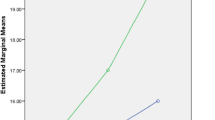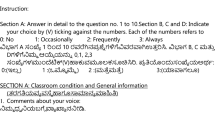Abstract
Introduction: One of the main characteristics of human beings is the voice because it is essential to be able to communicate. In the workplace we can say that it is one of the main tools that teachers have to teach their classes, but the frequent use of the voice in different tones can imply a great effort or demand, and the vocal quality can be affected by different factors environmental and personal habits. Teachers have requirements in their work activity, such as adapting to the demands of teaching, developing more dynamic classes, and in current conditions the high interactivity demanded by virtual classes generates a perception of high vocal effort. Objective: To assess the level of vocal impact on university teachers from different universities, colleges and schools in Ecuador through the self-perception of vocal disadvantage. Material and Methods: It is a descriptive and cross-sectional study, which included 106 male and female teachers. The Voice Handicap Index questionnaire was applied. This questionnaire allows evaluating the impact of vocal quality on teachers’ working lives. In addition, a survey was conducted on variables such as sex, age, average number of classes and hours taught per week, and smoking habits. Results: The average of the Voice Handicap Index of the total sample corresponded to a moderate handicap. 17% of teachers report that the clarity of their voice is unpredictable; 13.2% have smoking habits; 3.8% perceive their voice as hoarse and dry; 2.8% that other people do not understand their voice problem; 1.9% of those surveyed state that they try to change their voice to make it sound different; 1.9% feel that they must strain to speak; and 0.9% mentioned hearing their voice with difficulty. Conclusions: Teachers are one of the professional groups in which there is significant vocal involvement. The lack of vocal training that teachers have in the actions of their professional lives was evidenced.
Access this chapter
Tax calculation will be finalised at checkout
Purchases are for personal use only
Similar content being viewed by others
References
Begonya, T.: Anatomía Funcional de La Voz (2008)
Organization Mundial de la Salud: Clasificación internacional de deficiencias, discapacidades y minusvalías. Ginebra: Mundo Organización de la salud (1980)
Zubeldía, J., Elias, L., Bentorino, E., Wilder, F.: Relación entre VHI (Voice Handicap Index) y valoración objetiva de la perturbación vocal. Rev. Faso (1), 24–30 (2019)
Menon, U.K., Raj, M., Antony, L., Soman, S., Bhaskaran, R.: Prevalence of voice disorders in school teachers in a district in South India. J. Voice 35(1), 1–8 (2021). https://doi.org/10.1016/j.jvoice.2019.07.005
Jacobson, B.H., et al.: The voice handicap index (VHI): development and validation. Am. J. Speech Lang. Pathol. 6(3), 66–69 (1997). https://doi.org/10.1044/1058-0360.0603.66
En, L., et al.: Percepción de la discapacidad vocal de los pacientes con disfonía funcional del programa de terapia de lenguaje en el hospital guillermo almenara (2019)
Núñez-Batalla, F., Corte-Santos, P., Señaris-González, B., Llorente-Pendás, J.L., Górriz-Gil, C., Suárez-Nieto, C.: Adaptación y validación del índice de incapacidad vocal (VHI-30) y su versión abreviada (VHI-10) al español. Acta Otorrinolaringol. Espanola 58(9), 386–392 (2007). https://doi.org/10.1016/S0001-6519(07)74954-3
Alarouj, H., Althekerallah, J.M., AlAli, H., Ebrahim, M.A., Ebrahim, M.A.K.: A comparative study utilizing the voice handicap index-10 (VHI-10) in teachers and the general population of Kuwait. J. Voice 10, 1–10 (2020). https://doi.org/10.1016/j.jvoice.2020.05.006
Magdalena, U., Revollo-zúñiga, F., Hernández-blanco, J.: Prevalence of voice disorders in teachers Universidad del. 17(2), 2017–2018 (2020)
Tao, Y., Lee, C.T.C., Hu, Y.J., Liu, Q.: Relevant work factors associated with voice disorders in early childhood teachers: a comparison between kindergarten and elementary school teachers in Yancheng, China. Int. J. Environ. Res. Public Health 17(9), 1–16 (2020). https://doi.org/10.3390/ijerph17093081
Matas, A.: Diseño del formato de escalas tipo Likert: un estado de la cuestión. Rev. Electrón. Invest Educ. 20(1), 38–47 (2018)
Domínguez, A., López, A., Núñez, S., Portela, I., Elia, V.: Perturbación de la Voz en Docentes. 13 (2020)
Author information
Authors and Affiliations
Editor information
Editors and Affiliations
Rights and permissions
Copyright information
© 2021 The Author(s), under exclusive license to Springer Nature Switzerland AG
About this paper
Cite this paper
Silva, R., Jara, O., Carrera, E., Davila, P., Saá, J.L. (2021). Vocal Disability Index in Teachers from Ecuador. In: Goonetilleke, R.S., Xiong, S., Kalkis, H., Roja, Z., Karwowski, W., Murata, A. (eds) Advances in Physical, Social & Occupational Ergonomics. AHFE 2021. Lecture Notes in Networks and Systems, vol 273. Springer, Cham. https://doi.org/10.1007/978-3-030-80713-9_21
Download citation
DOI: https://doi.org/10.1007/978-3-030-80713-9_21
Published:
Publisher Name: Springer, Cham
Print ISBN: 978-3-030-80712-2
Online ISBN: 978-3-030-80713-9
eBook Packages: EngineeringEngineering (R0)




